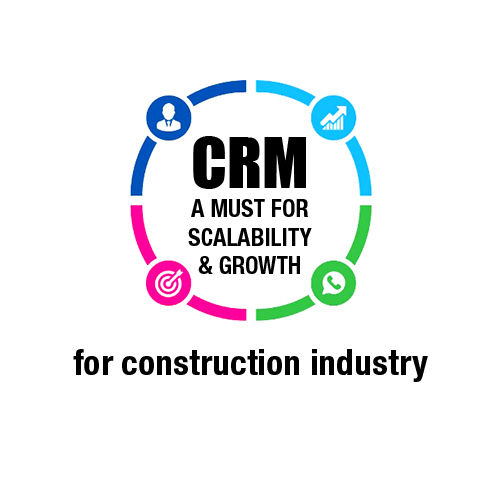 CRM for construction industry
CRM for construction industry
Programming & Tech
CRM development for construction industry
Product Info
A CRM (Customer Relationship Management) system developed specifically for the construction industry is designed to help construction companies manage customer relationships, streamline sales processes, and improve project management. It includes features such as lead and opportunity management, project management integration, customer communication tracking, estimating and quoting capabilities, contract and document management, progress tracking, resource allocation, collaboration and notifications, reporting and analytics, and mobile accessibility. By customizing a CRM to suit the unique needs of the construction industry, companies can enhance their sales efforts, improve project efficiency, and deliver better customer experiences.Description
-
CRM development for the construction industry can be a valuable tool for managing customer relationships, streamlining sales processes, and improving overall project management. Here are some key considerations and features to include when developing a CRM specifically for the construction industry:
-
Lead and Opportunity Management: Track and manage leads and opportunities from initial contact to project closure. This includes capturing contact information, communication history, project details, and assigning follow-up tasks.
-
Project Management Integration: Integrate the CRM with project management tools to ensure seamless collaboration between sales and project teams. This allows for a smooth transition from sales to project execution, ensuring all relevant project information is readily available.
-
Customer Communication Tracking: Keep a record of all customer interactions, including emails, calls, meetings, and notes. This helps sales representatives and project managers stay updated on the latest communication history, ensuring a personalized and informed approach.
-
Estimating and Quoting: Enable the CRM to generate accurate estimates and quotes based on project specifications, quantities, and pricing data. This saves time and improves accuracy when preparing proposals for customers.
-
Contract and Document Management: Store and manage important project documents, such as contracts, permits, and drawings, within the CRM. This allows for easy access and sharing of documents with the relevant team members and stakeholders.
-
Progress Tracking: Monitor and track project progress, including key milestones, timelines, and deliverables. This feature helps identify potential bottlenecks and ensures projects stay on schedule.
-
Resource Allocation: Allocate and manage resources efficiently, including labor, equipment, and materials. The CRM can provide visibility into resource availability, utilization, and allocation, enabling better planning and optimization.
-
Collaboration and Notifications: Facilitate collaboration and communication among team members by enabling features such as shared calendars, task assignments, and real-time notifications. This ensures everyone involved in the project stays informed and can coordinate effectively.
-
Reporting and Analytics: Generate comprehensive reports and analytics on sales performance, project status, and other relevant metrics. This helps identify trends, measure success, and make data-driven decisions.
-
Mobile Accessibility: Develop a mobile-friendly CRM that allows users to access and update information on the go. This is particularly useful for construction professionals who frequently work on-site or in remote locations.
Remember that CRM development for the construction industry should be tailored to meet the specific needs and workflows of construction companies. Working closely with industry professionals and stakeholders during the development process will help ensure the CRM aligns with their requirements and provides maximum value.
-

